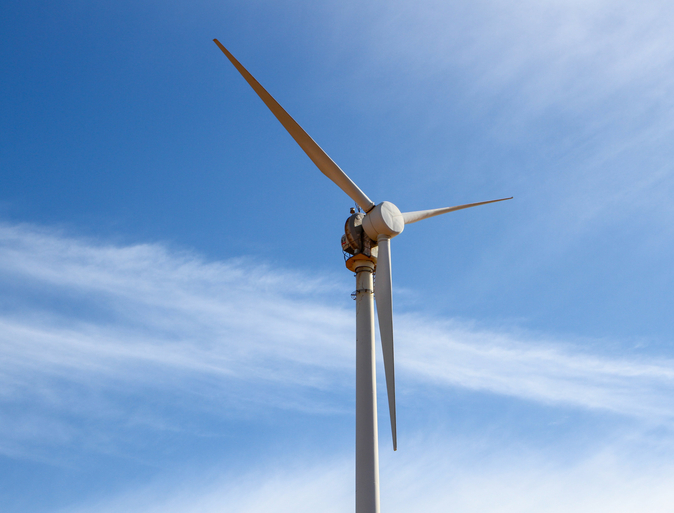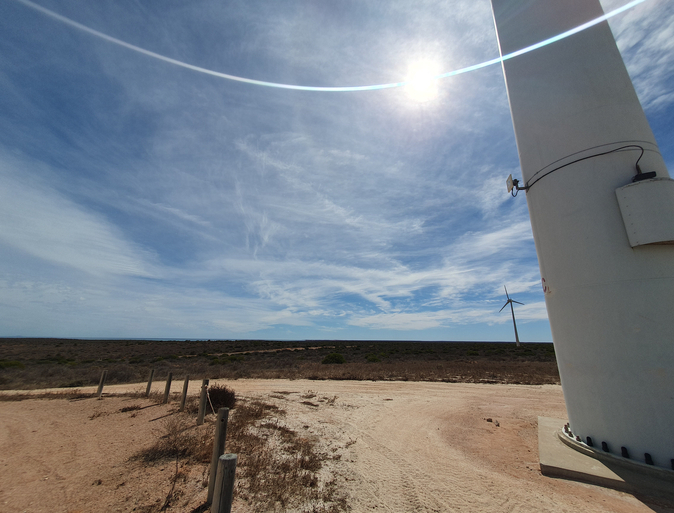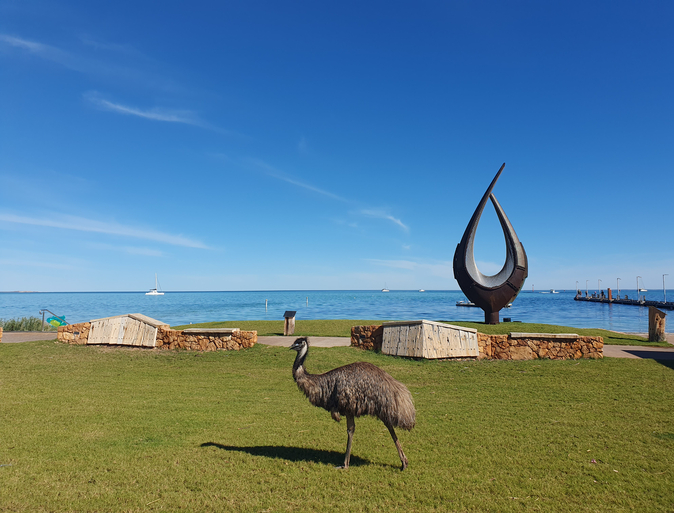Overview
We’re planning the next stage of Denham’s energy future with the replacement of aging wind turbines to maintain and enhance renewable energy contributions in this iconic coastal town which sits on the doorstep of the Shark Bay World Heritage Area.
Denham’s existing wind turbines have played a valuable role in reducing reliance on diesel. Given the age of these assets, Horizon Power is evaluating the feasibility of replacement options.
We’re currently assessing options that will help us increase renewable energy generation and support decarbonisation, while maintaining the reliability and affordability of Denham’s power supply.
How does Denham’s current system work?


What's happening now?
We’re in the options assessment and community engagement phase of the project. This includes technical analysis, economic modelling, and early engagement with Traditional Owners, residents and key stakeholders in the Denham area.
An Expression of Interest (EOI) is expected to be issued in mid-2025, seeking input from technology providers to inform the design of Denham’s future wind generation system.
We’ll continue to share updates and consult the community as planning progresses.
Community collaboration
We’re using Horizon Power’s Future Energy Framework to work closely with local residents, Traditional Owners, businesses, and government agencies to design solutions that reflect Denham’s unique character and aspirations.
This includes considering land access, heritage factors and the broader vision for the Gascoyne region’s clean energy future.

Frequently asked questions
-
Are the turbines just servicing the town of Denham?
Yes. Both the hydrogen plant and the wind turbines are fully integrated into Denham’s standalone microgrid, which supplies power exclusively to the local community. The wind turbines do not export energy to other towns and are dedicated to helping meet Denham’s energy needs.
-
Why are you replacing the wind turbines?
Denham’s wind turbines were installed in 1997–98 and are now approaching the end of their operational life. With one turbine no longer functioning, and another nearing the same condition, replacing them with modern, more efficient technology is essential to maintaining a reliable energy supply for the community.
-
Will the new turbines be more efficient?
Yes, the new turbines planned for Denham are expected to be more efficient than the existing ones. Overall, the replacement of Denham's wind turbines is anticipated to bring about increased efficiency and reliability, contributing to the town's sustainable energy future.
-
How does Denham benefit from this project?
Denham will benefit through the increased generation and use of clean, renewable energy leading to a reduction in fossil fuel consumption, and improved energy reliability. Upgrading the wind turbines will ensure the community maintains a significant renewable energy contribution and reduces long-term operating costs. The project is also designed to accommodate future population growth and demand.
-
How long will the replacement project take?
The current phase includes community consultation, engineering assessments, and an Expression of Interest (EOI) planned for mid-2025. Once a preferred solution is selected and all regulatory approvals are in place, the wind turbine replacement project is expected to take approximately three years to complete.
-
Will the old wind turbines be recycled?
We're currently exploring the feasibility of recycling components from the existing turbines, including assessing which parts can be recycled, identifying the nearest suitable recycling facilities, and evaluating the costs involved.
What's happening and when?
Here's a high level timeline of what to expect, subject to change as the project progresses.
2023 to 2024
Project scoping and feasibility
This first phase involved identifying the need to replace Denham’s ageing wind turbines and assessing potential future energy system pathways.
2024 to 2026
Project planning and market engagement
Phase 2 of the project involves undertaking community engagement activities and preparing for an Expression of Interest (EOI) process to identify potential technology solutions and delivery partners.
2026 to 2027
Request for Tender (RFT)
In Phase 3, we’ll invite detailed proposals through a Request for Tender. This will help us assess the most suitable wind generation technology and delivery model for Denham’s needs.
Late 2027
Business case and approvals
A business case, including the recommended technology and delivery pathway, will be presented to Horizon Power’s Executive and Board, followed by submission to government authorities for approval. We expect to share a construction timeline by the end of 2026, pending all required approvals.
Early 2028
Financial investment decision
Once the project receives the necessary approvals, Horizon Power’s Executive and Board will formally sign off on the financial investment decision. This decision confirms the allocation of capital and allows the project to move forward into project delivery.
Mid to late 2028
Project delivery
Once approved, we’ll move into the design, construction and installation phase. This will include replacing the ageing turbines and integrating the new system with Denham’s existing energy infrastructure.
2029
Project completed
The upgraded wind generation system will be operational—helping to deliver cleaner, more reliable energy and supporting Denham’s transition to a more sustainable future.
Horizon Power acknowledges the Traditional Custodians throughout Western Australia and their continuing connection to the land, waters and community. We pay our respects to all members of the Aboriginal communities and their cultures; and to Elders past, present and emerging.
Aboriginal and Torres Strait Islander people are advised that this website may contain images, names or voices of deceased people.